-
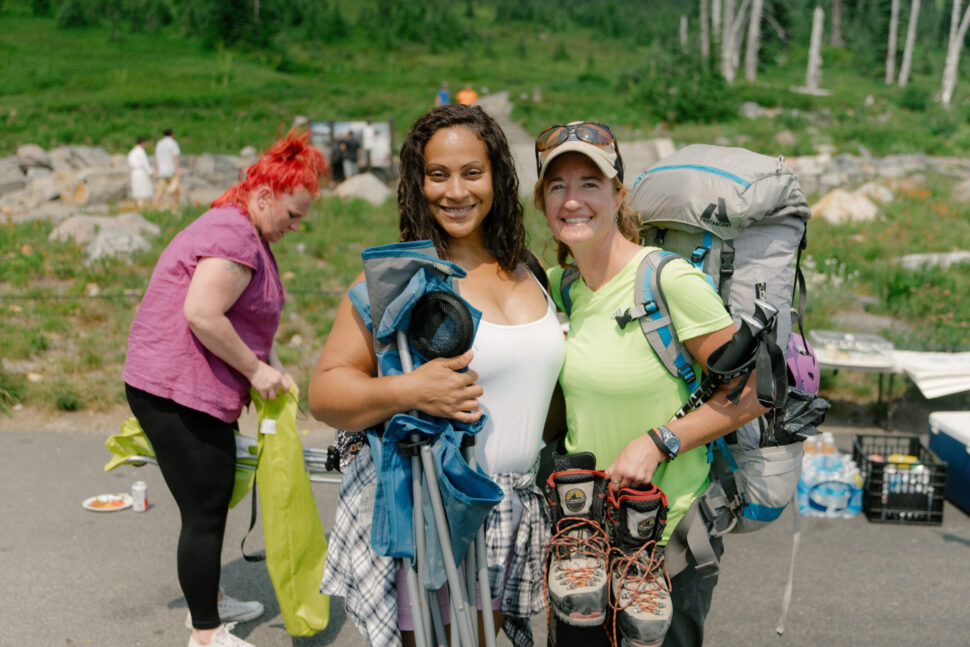
Real Recovery Goes Beyond Charity
Charity isn’t a word you hear too often anymore. It carries the connotation of a hand-out; in the extreme, the concept of charity can infantilize those receiving it and make those giving it seem arrogant and aloof.
This shouldn’t be the case. Selfless giving and accepting gifts without shame are hallmarks of our humanity. There are people in our very own communities who truly need charitable giving now. Individuals and families who have no food, no home, and no means to meet their basic needs of survival.
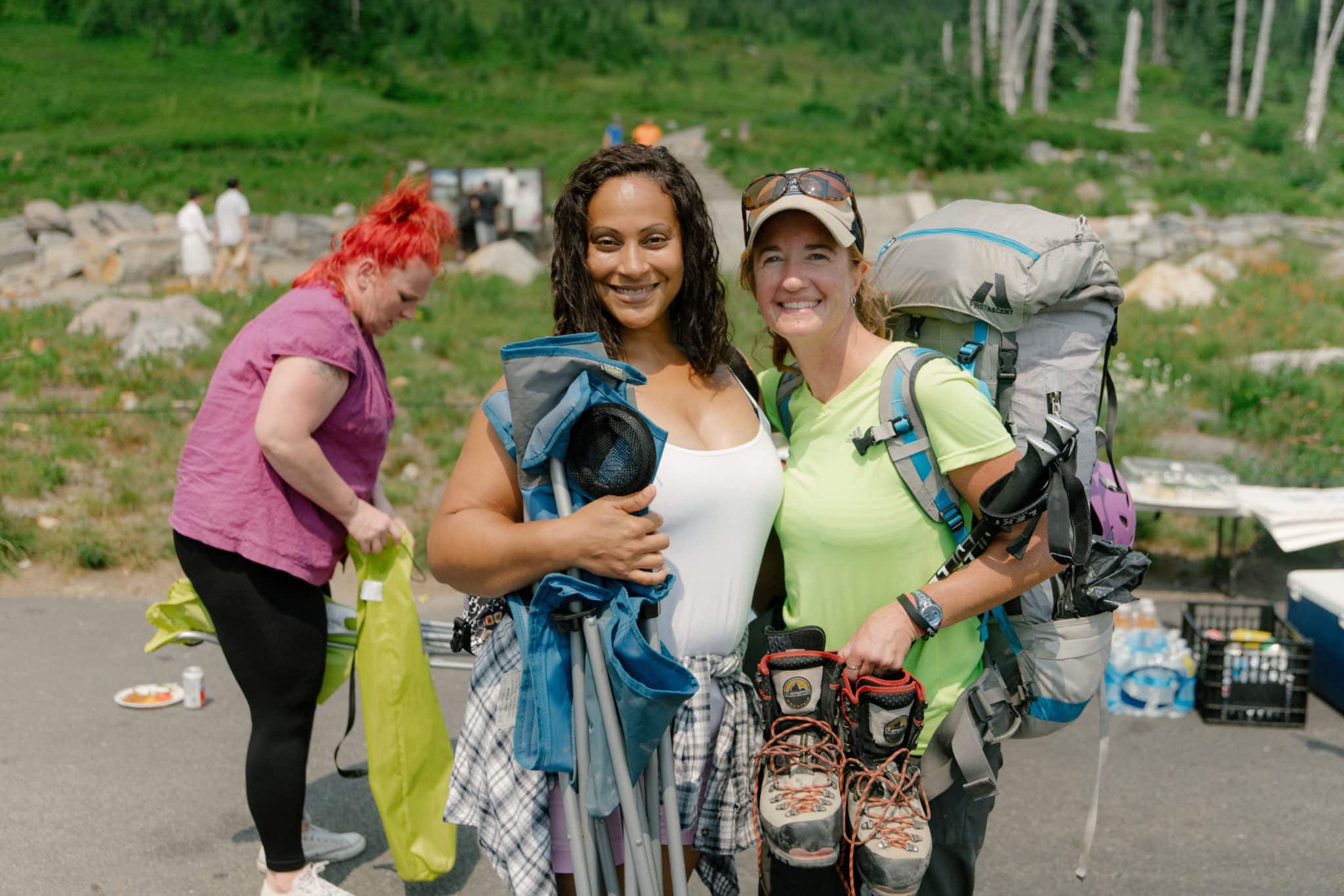
Without charity, we would be literally leaving these people out in the cold.
It’s true, however, that this type of charity—giving that meets people’s basic and immediate needs—does not lead to long-term solutions for problems like homelessness and the addictions that often lie at its roots.
Charity is important and essential, and it’s just the beginning.
Community Investment for Lasting Relief, Growth, and Healing
Once basic needs are met, people can focus on making lifelong changes for more rewarding and community-driven lives. Resources to guide and promote these long-term changes are lacking, though.
That’s where Recovery Beyond is making a difference.
Through our current programs, Climbing Out and Team Mission, we provide individuals already succeeding in addiction recovery programs with an additional and lasting opportunity for growth.
In Climbing Out, ten months of team-building and intense physical and mental training culminates in a five-day hike to the summit of Mt. Rainier—an achievement that resonates for the rest of anyone’s life. Team Mission (our companion program at Seattle’s Union Gospel Mission) achieves the same results through ongoing guidance in the sport of long-distance running, an activity that is more accessible yet demands equal commitment, endurance, and effort.
Reaching the peak and making it through that last mile are memorable rewards, but it’s the trek that makes it all worthwhile. It’s the new skills and perspectives climbers and runners build along the way that leads to new lives and new futures.
Homelessness and the substance dependency that often precedes and is exacerbated by it is a complex social and personal problem. Recovery Beyond addresses the personal aspects, empowering participants with better understandings of themselves and the extent of their capabilities.
Where charity leaves off, they learn to take the next steps, confident of the ground underneath their feet.
Ending Addiction, One Step At a Time
There are hundreds of thousands of homeless people and families in the United States, and more than twenty thousand in Washington State. More than 60{637c4c527fde39f83a380e19107d2ba88ad72607f37ccf8f8b7edeff1c20688c} of these people also suffer from substance dependency. Ending addiction is key to ending homelessness, and to mitigating an array of problems and behaviors detrimental to the community at large.
No single program can do it all. No single approach will be the key to success.
But the difficulty is no excuse, and we can do better.
If you’re interested in learning more about Recovery Beyond, making a contribution or even joining our Fundraising Climb to experience the life-changing Rainier summit for yourself, please click here to learn more.
JOIN THE INVESTMENT DRIVE0 -
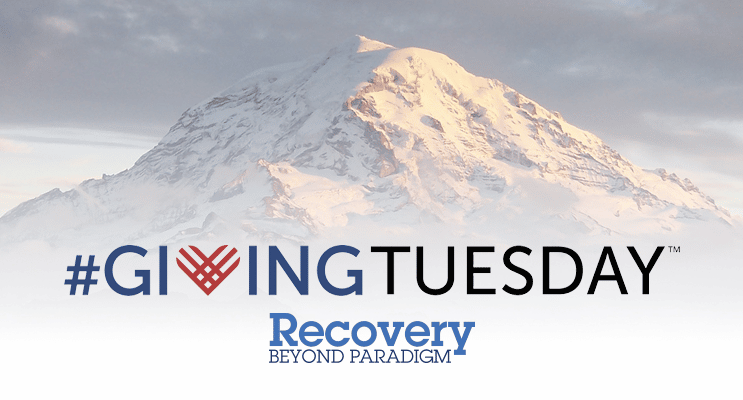
A Problem In Need Of Holiday Giving
Let’s be clear: every single dollar given to help another human being is priceless. Whenever you give, whatever you give, know that it’s appreciated and going to good use.

Unfortunately, the disproportionate number of donations given in a holiday season can make budgeting and planning difficult for many organizations. They may be pressured or even required to use the resources they have on hand to serve as many as possible, as quickly as possible, and this can leave them coming up short the rest of the year.
Giving Tuesday doesn’t solve that problem, but by choosing the right organizations to give to, you can.
This year, we ask that you consider donating to organizations that are less crisis-oriented, and more focused on long-term changes that will ease the burden on temporary shelters and food banks.
The Climbing Out program provides a unique opportunity to people who are currently struggling with addiction-related homelessness by successfully recovering from addiction. Those participating in our program rebuild their strength, resolve, and commitment to themselves, building more resilient connections with their community along the way.
This program doesn’t provide shelter or meals. It provides the means for self-sufficiency, healing, and growth, so our climbers may never experience another homeless Thanksgiving again.
We’re not saying you shouldn’t make planned donations to homeless shelters, soup kitchens, and other organizations this time of year. Please do, if you can! Our organization currently partners with two local homeless shelters, Seattle’s Union Gospel Mission and The Tacoma Rescue Mission; both of us are grateful for your support.
We also hope you’ll consider the long-term impacts of your giving, and balance the urgent needs of today with the unsolved problems of tomorrow. Learn more about our business case and Investment Drive and make this Giving Tuesday last the entire year.
Click here to learn more about the Climbing Out Program.
DONATE TODAY! -
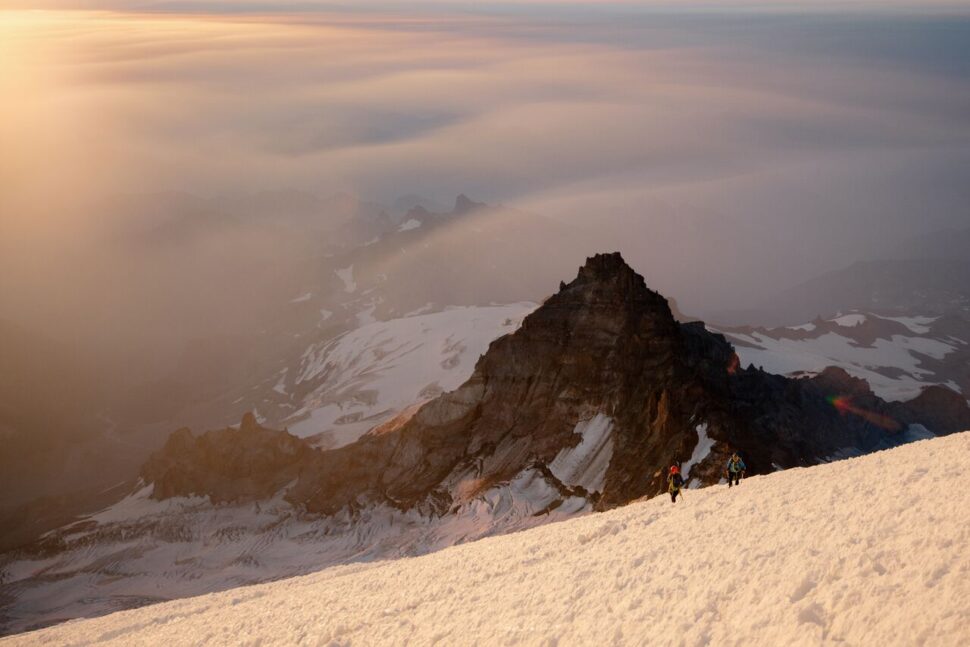
Can We End Addiction-Related Homelessness with a Mountain Climb?
As a result of the opioid crisis and addiction problems plaguing our society, homelessness continues to be on the rise. Every night, more than half-a-million people in the United States are in search of somewhere to sleep.
When they’re lucky, they find a shelter, or doorway, or a bench, or a patch of grass or asphalt. The unlucky spend their nights wandering, or under arrest, or in any number of dangerous circumstances.
And every morning, there are a few who don’t wake up.
Homelessness is a life-and-death issue and addiction plays a large part in the problem. Many of our nation’s homeless who also suffer from a drug addiction have that much more to overcome and are that much more at risk. While there are many programs and shelters doing terrific work to help our homeless population, they don’t have space or the resources to help everyone.
And few programs have proven successful in helping to lift people out of their addictions and as a result, homelessness permanently and productively. Why? Because they aren’t equipped to treat the root causes like addiction, and because there are too many lives that need saving today to make adequate plans for tomorrow.
We need to change the paradigm. We need better long-term solutions for homelessness, for addiction, and for giving everyone the help and the tools for self-help they need.
Climb Out
Of the 540,000+ homeless people in the US, more than 21,000 of them are here in Washington State. Well over half of Washington’s homeless citizens are located in the Seattle-Tacoma area—one of the most affluent and high-tech regions in the country.
In cities with many “haves,” the plight of the “have-nots” becomes even harder to witness.
But homelessness isn’t simply a matter of economic hardship. For many, it is tied to lives of abuse, neglect, drug addiction, and other mental health issues. For these people, finding their way to a happy and productive life means undergoing a more intense and profound healing process than finding a new place to call home.
They need a way to take back control, and to build the skills and strengths they need to move up and beyond the positions, they’ve landed in.
Since 2011, our organization has been working with two local shelters to give recovering addicts a life-changing experience—one that allows them to truly climb out of homelessness. Each year, individuals demonstrating success in a broader recovery program receive nearly 10 months of physical and mental training in preparation for a summit of Mt. Rainier. The five-day trek is one that few people from any walk of life attempt, and marks a significant triumph for those with a background of drug dependency and shelter insecurity.
This year, we’re holding a Fundraising Climb to raise funds to help serve more people. Eight donors will be joining us on a climb that follows a route our program participants may take, right up to the peak of Mt. Rainier. These donors can’t get their alone, though—they need your help, too, because they’re each raising funds to sponsor a minimum of two recovery climbers in 2019.
Please consider making a contribution to one of our donor climbers. Together, we can take steps to end homelessness once and for all, one summit at a time.
To donate, or to learn more about our organization and our Fundraising Climb, please click here.
SIGN UP TO PARTICIPATEWant to donate to a participant’s climb? Visit https://donate.recoverybp.org, search for the climber you want to support and make your donation.
-
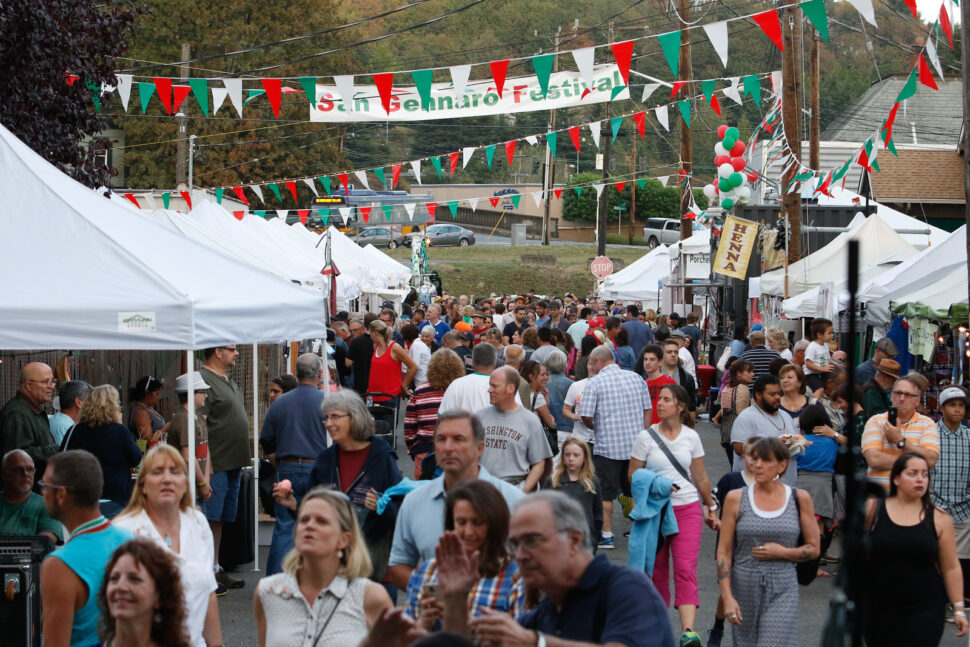
Support Recovery Beyond at the San Gennaro Festival
Are you planning to attend the San Gennaro Festival? If you are, stop by the booth “Ursino Cugini Pizzelles” or the wine garden and enjoy a great Italian cookie favorite – the Pizzelle! Cookie sales support Recovery Beyond and of course, donations are welcome.
Here are the details
San Gennaro Festival
September 7th through 9th1225 S. Angelo Street
Seattle, WA 98108Hours:
Friday from 6:00 pm – 10:00 pm
Saturday from 10:00 am – 10:00 pm
Sunday from 10:00 am – 4:00 pmThanks for your support.
-
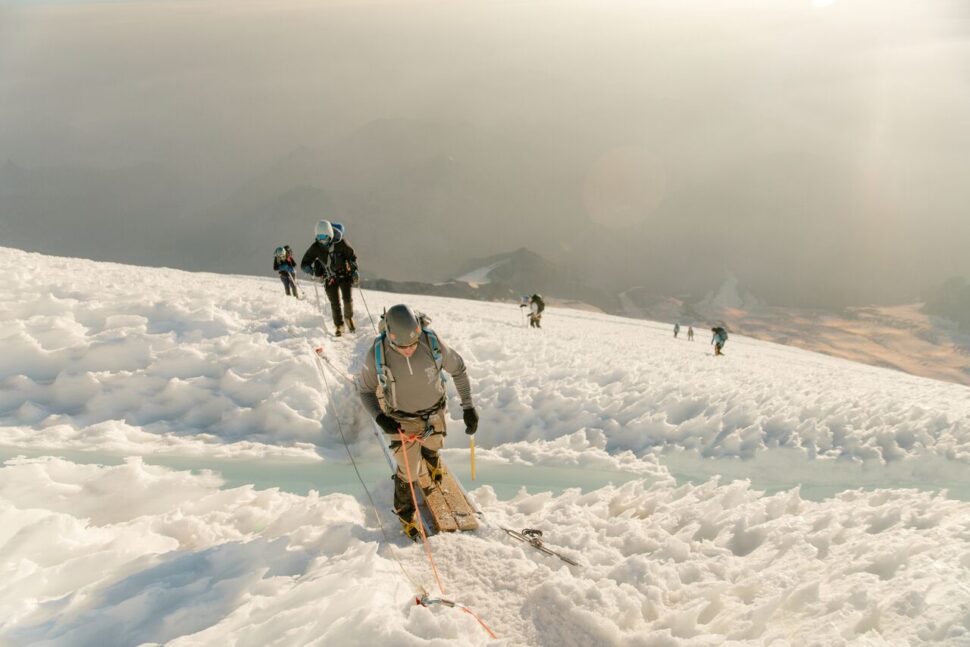
Reaching The Summit – 2018
This past week the second of two teams reached the summit of Mt. Ranier bringing to a close another successful year of climbs for Recovery Beyond and the Climbing Out program. The energy and effort that was put into this program as a team (donors, volunteers, climbers, staff, and others who supported our efforts), is most reflected in this capstone climb. Thank you for your involvement and congrats to our collective success.
Watching someone in our climb program move from being disconnected from community and struggling with a low-view of themselves, to standing on top of the highest peak in Washington, connected and beaming with confidence, is why we do this work. Sarah Farrens, a 2018 recovery climber, shared this sentiment and her experience at Camp Muir this past week.
Without the commitment and dedication of the entire team, what we accomplished could not have been possible. The board, the staff, the donors, the many volunteers, and the miraculous dedication of our recovery climbers, together allows for this collective success. So again, thank you!
We had 100{637c4c527fde39f83a380e19107d2ba88ad72607f37ccf8f8b7edeff1c20688c} summits for recovery climbers, all injury free, and a monumental achievement in our climbers lives, the community, and this program’s history. Here are a few more details surrounding our capstone climb.
2018 Rainier Climb Stats:
- 8 recovery climbers summited Mt. Rainier (4 women, 4 men) – all indicated when asked that this was a top accomplishment in their life
- 23 total RBP climbers (including guides) to the summit
- 45 volunteers helped with guiding, basecamp support, portering, celebration picnics, trip briefings and more
Take a look at these stunning photos showcasing this year’s climb.
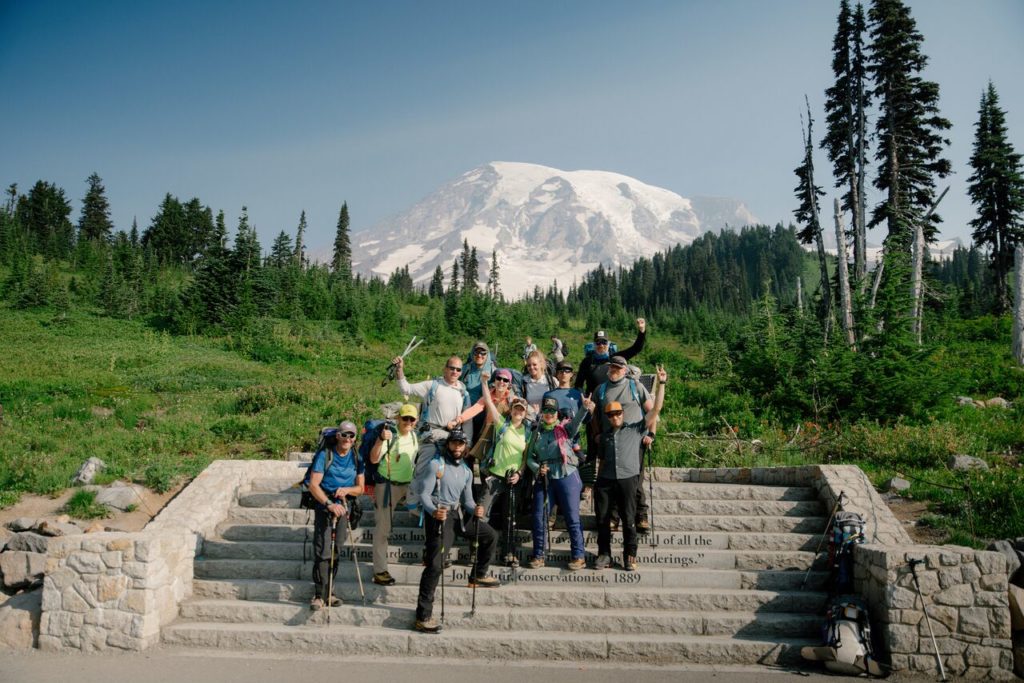
Tacoma Team on the Paradise Steps before their hike to Camp Muir, Paradise, WA
photo courtesy: Greg Balkin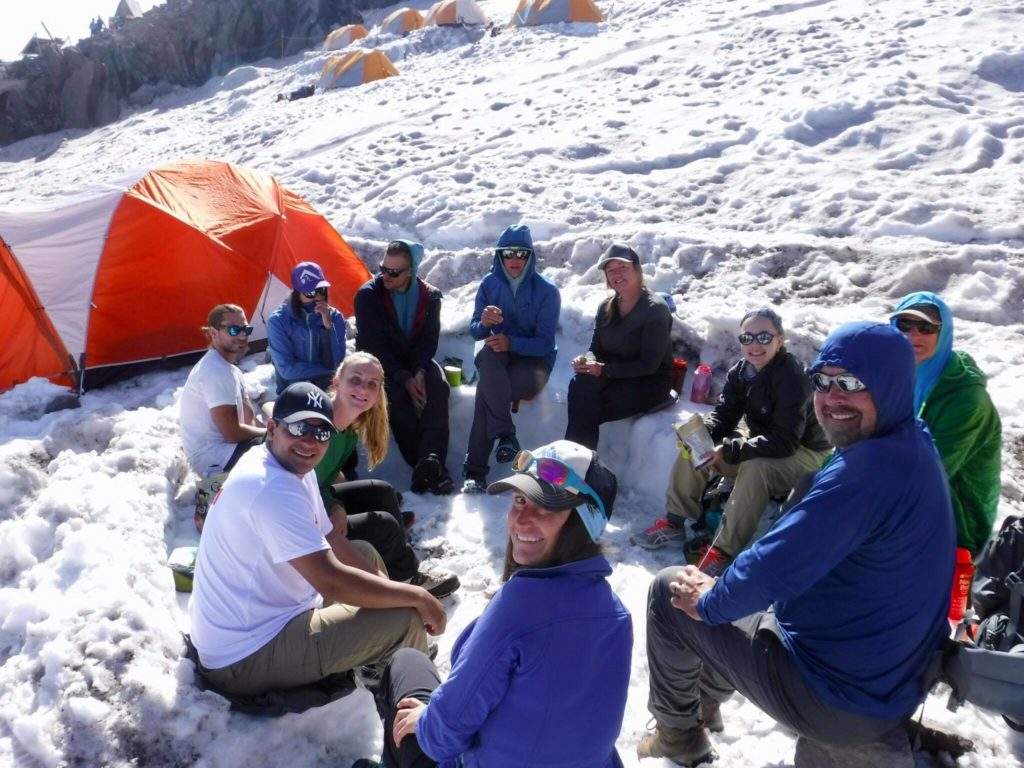
Seattle Team having dinner at Camp Muir
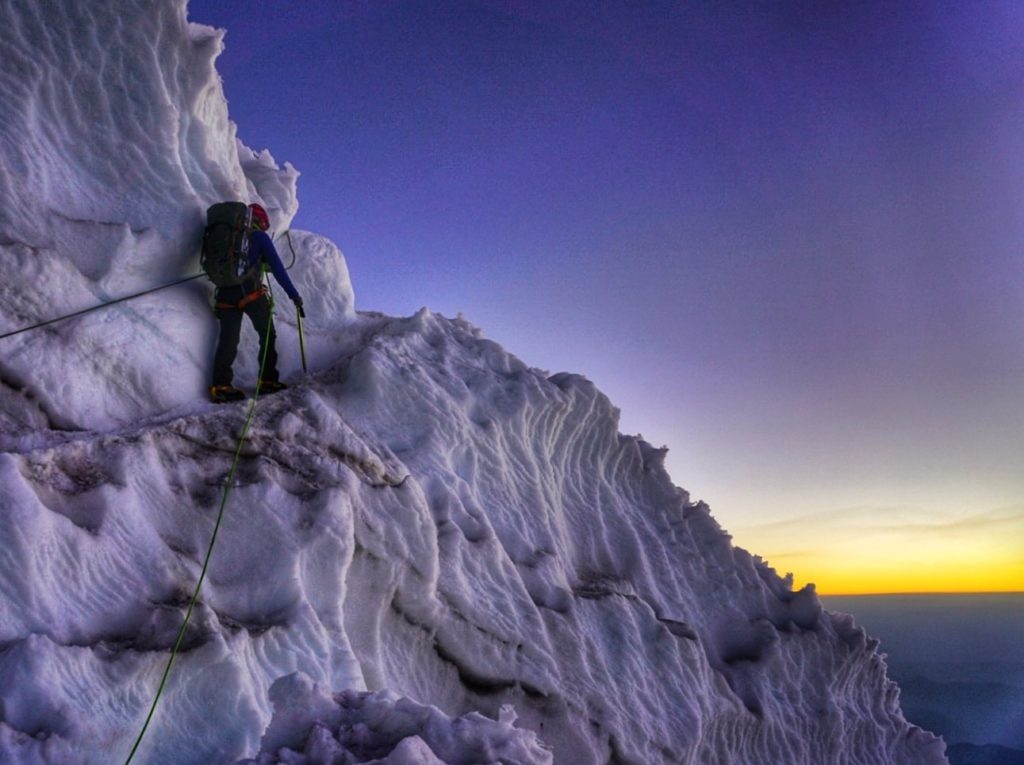
McKenzie Johnson Crossing onto the Emmons Shoulder at Dawn
photo courtesy: John Colver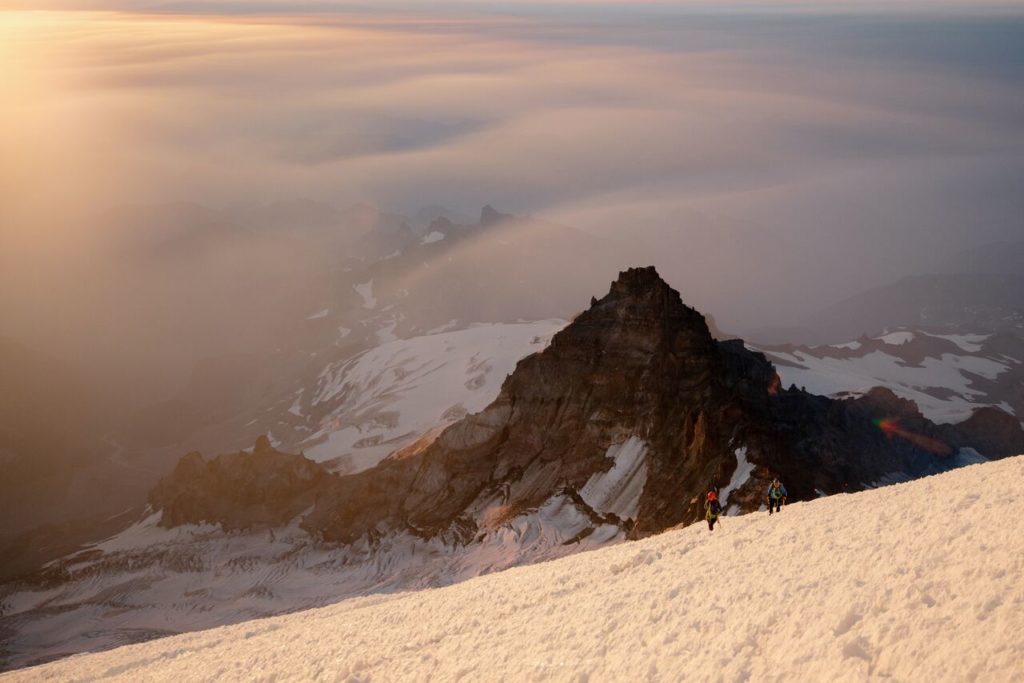
Little Tahoma, Near High Break, Emmons Glacier – 13,500′
photo courtesy: Greg Balkin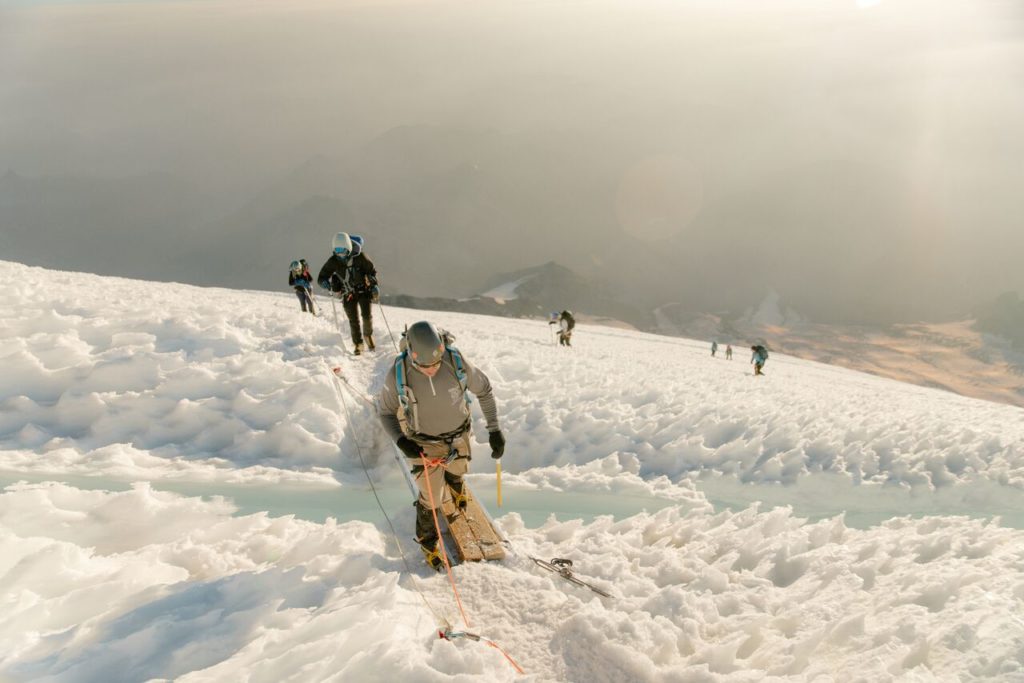
Ladder Crossing, Near High Break, Emmons Glacier, 13,500ft
photo courtesy: Greg Balkin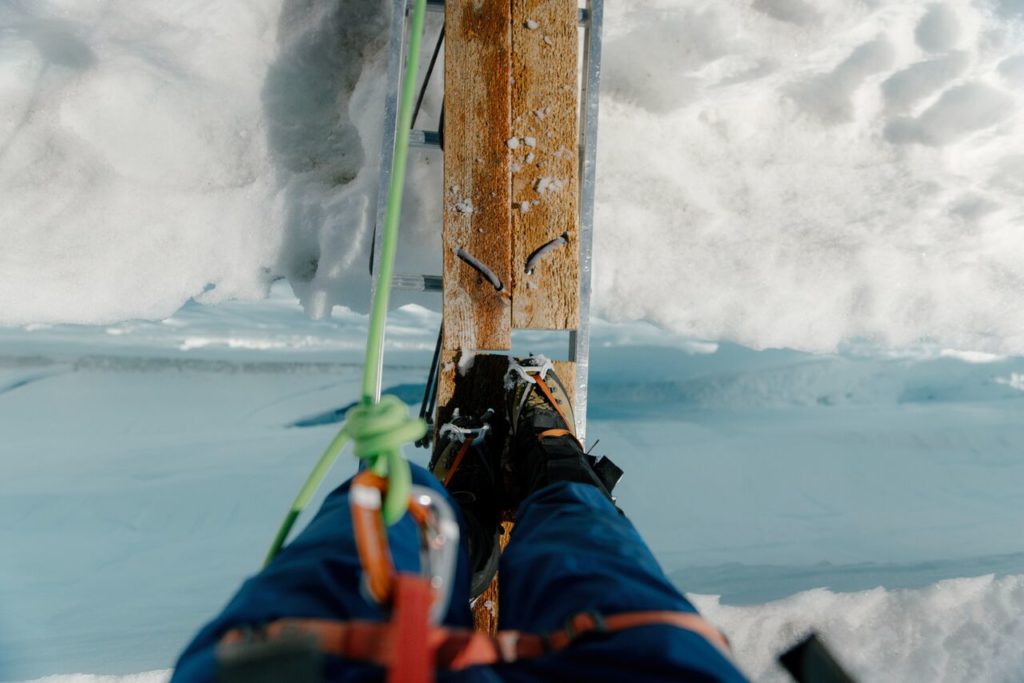
Peering into a Crevasse, the Emmons Shoulder, near 13,200′
photo courtesy: Greg Balkin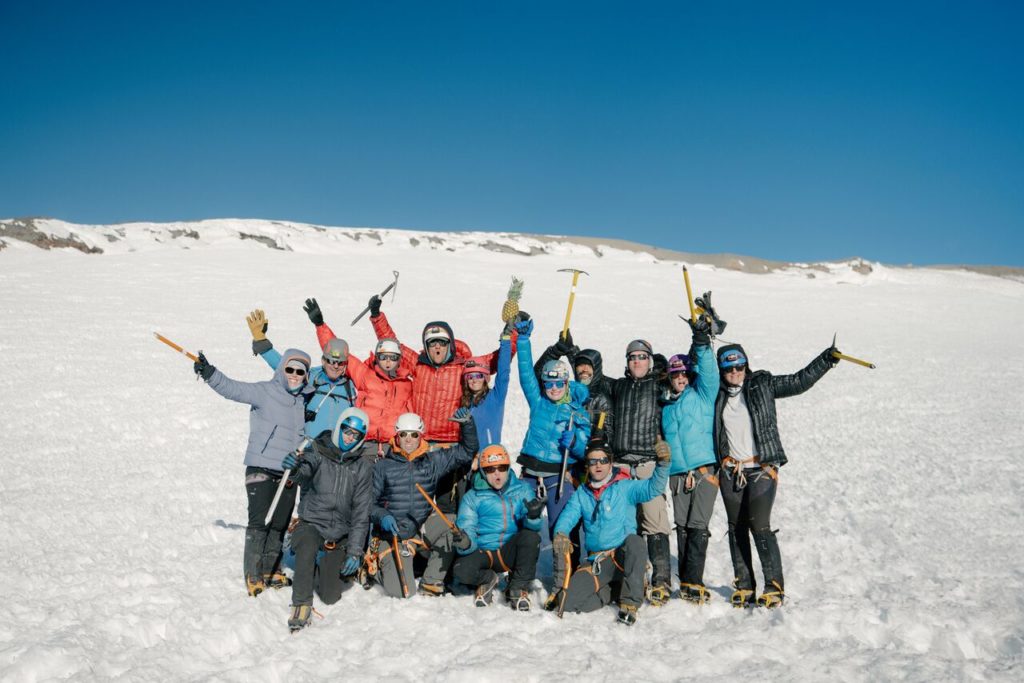
TACOMA SUMMIT PHOTO 2018
photo courtesy: Greg Balkin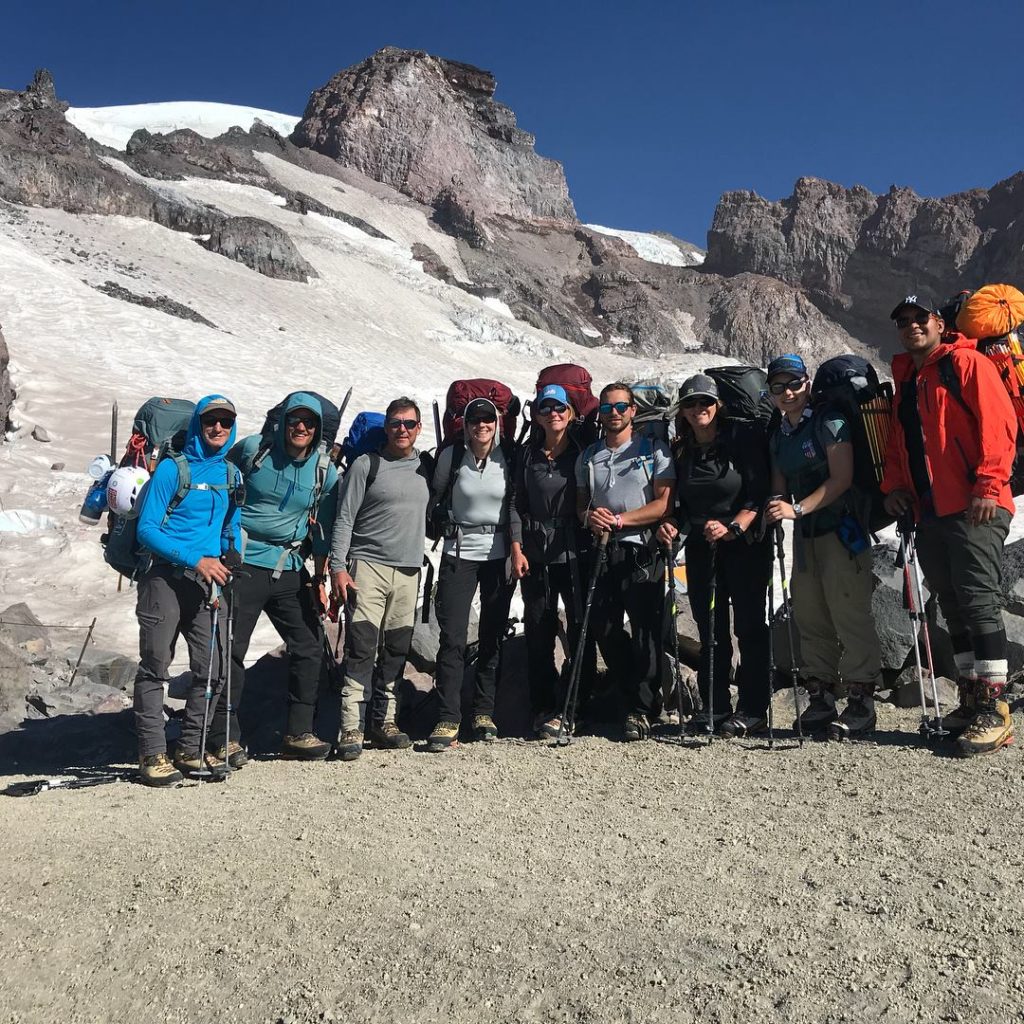
Seattle Team Packed Up, Leaving Camp Muir
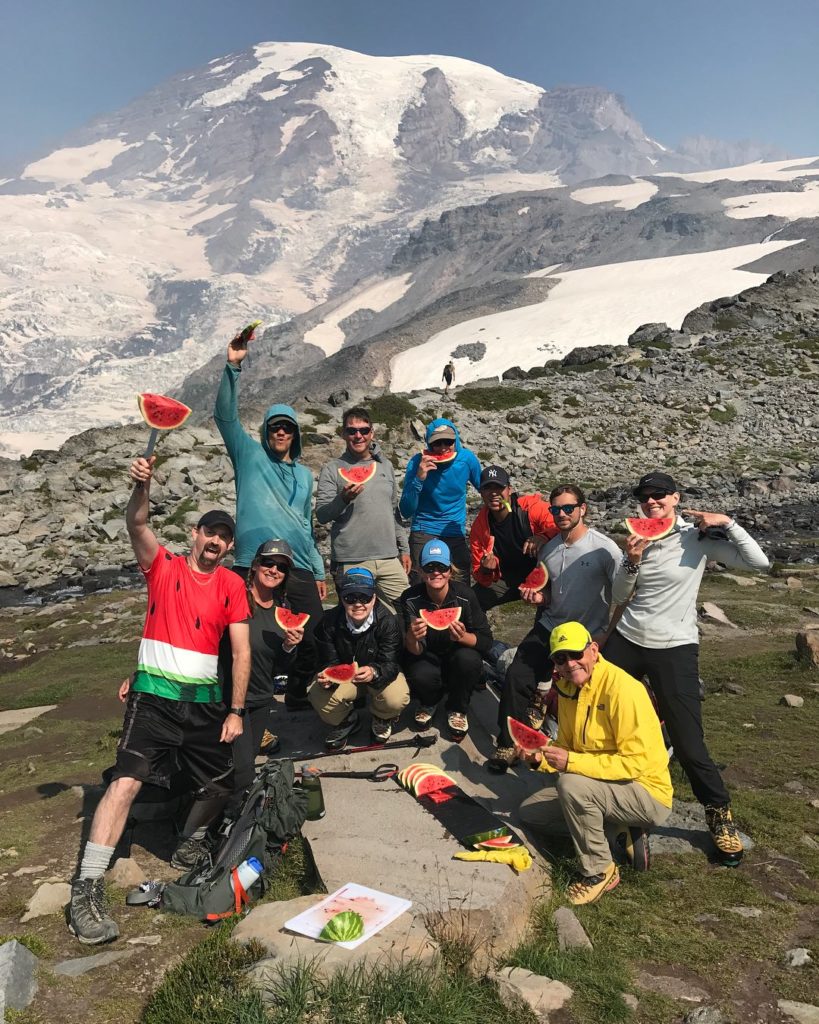
Watermelon Tradition! – Watermelon Break at Pebble Creek before final decent to Paradise.
photo courtesy: Scott Brown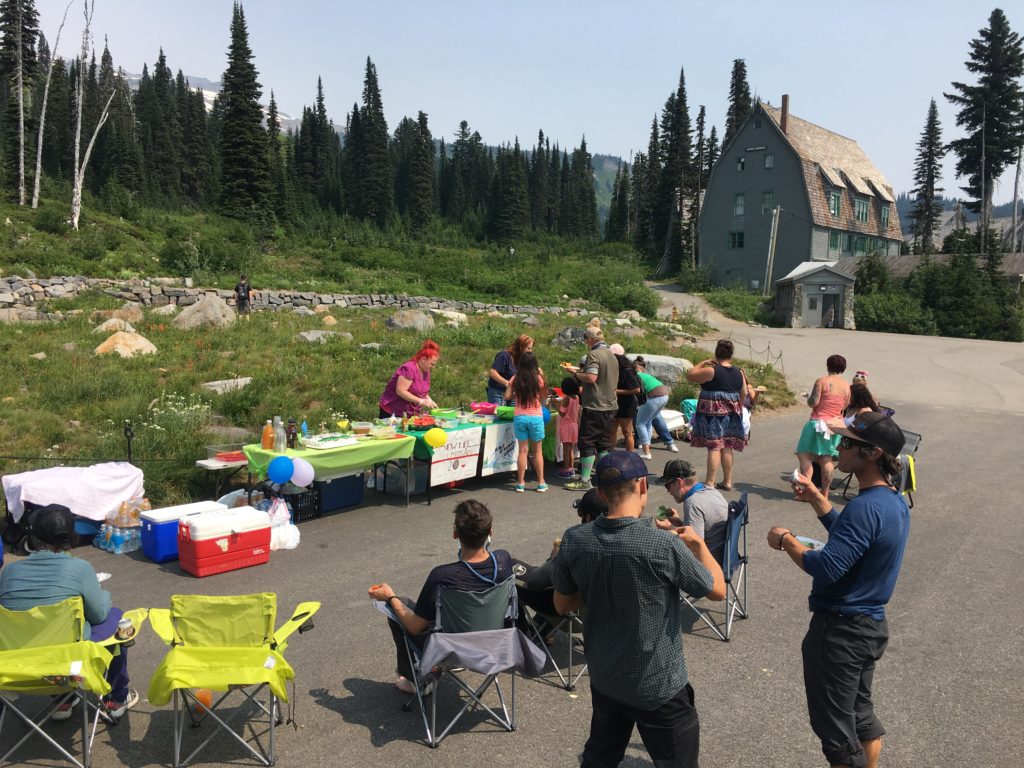
Tacoma Team Picnic at Paradise, WA
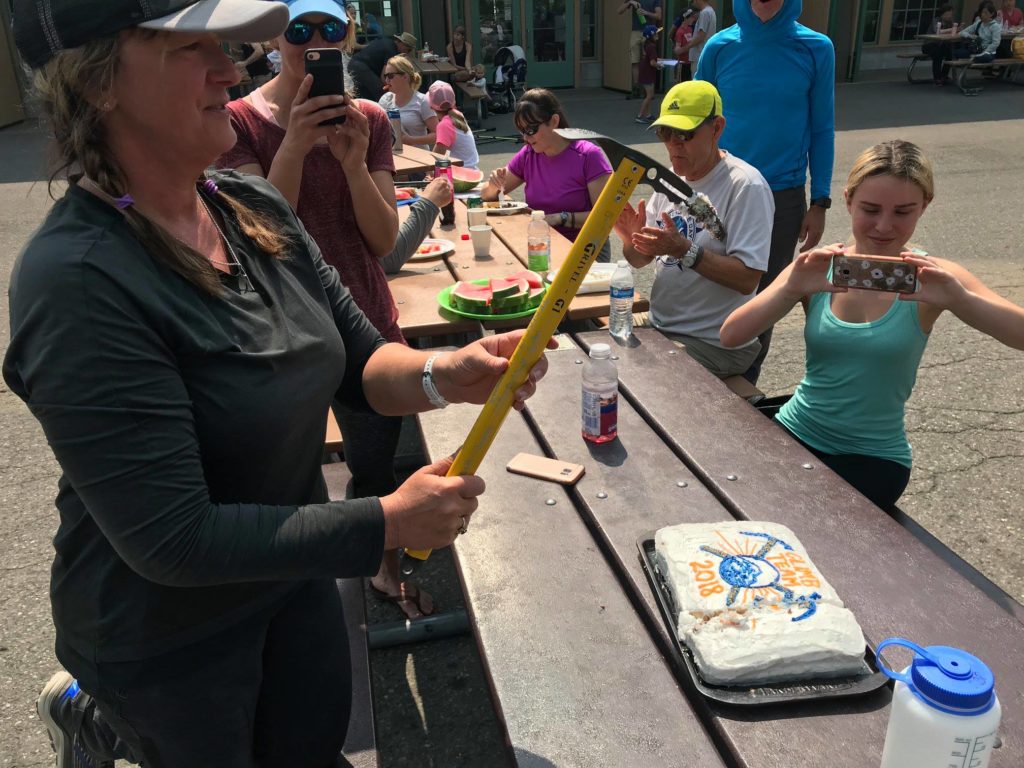
Seattle Team Picnic at Paradise, WA, our tradition of cutting the “mountain cake” with the ice axe!
-
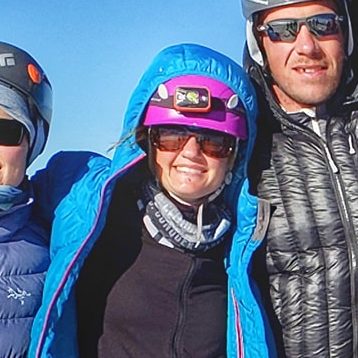
Sarah Farrens
Name: Sarah Farrens
Age: 35
From: Spanaway, WA
Sarah and her other recovery climbers and leaders at the summit of Mt. Rainier, 14,410ft. (Sarah is in the blue coat and purple helmet, second from the left)
A Little Bit About Sarah
For Sarah, a native of Spanaway, motherhood was the best motivation to turn her life around. “I have these two beautiful children (Ally is 5 and Bubba is 3) that I wasn’t being the best mom too, so I was willing to try anything,” she said of joining the Climbing Out climb team. 30-day-programs had failed her before, and she had to hit rock bottom before finding her way here. “[The Climb Team] is a commitment I’m sticking to!” she says, “It is a healthy replacement that gets me motivated to be strong and healthy.” Her goals outside of the climb itself include pursuing a career as a substance abuse counselor while becoming the best mom to her kids.
Two days ago, on August 8th, 2018, Sarah did the unthinkable. She stood atop Mt. Rainier. 14,410ft, the tallest peak in Washington, and a great metaphor for what she has come to accomplish this last year. We couldn’t be more proud of her. A year ago to the day, she was on another relapse. Today she tells us she feels like a whole new person, a better mom, a better friend, and a now one heck of a mountain climber! She did it!
On August 7th, hours before her summit climb, we interviewed Sarah about her experience being on this team. Here is what she had to say.
RBP: What is the main thing you’ve been given from this climb team?
Sarah: “A family and a network of support. These people are my family now. I’ve never had relationships like this. I can trust and be trusted now. Also, I have healthy muscles and am so much happier than before, so that’s nice too!”
RBP: Do you think you would have the same success without this program?
Sarah: “I don’t think so. The outdoors brings some sort of peace to me. The ability to breathe. The ability to get outside yourself. I love how small it makes you feel; it puts things in perspective. And mountain climbing can be kind of messy too, but it’s a good mess. A mess where I can meet myself in a “whole” way. The reason I started drinking is that I was so insecure. I felt like a mess. You get a lot of things in addiction you wouldn’t normally get in sober life. Now I have more time and the confidence to do things. I’ve been like “Woah, I can do this without all of that” (addiction). It gives me something different to seek.”
RBP: Why do you climb?
Sarah: “A year ago, I could barely get out of bed in the morning ya know. Now I get to do something like this (points to Mt. Rainier from Camp Muir). I am excited to share this with my kids and for them to know that mommy did this for them. I want to show them how to do life right. I want them to see they can do things!”
RBP: Do your kids realize what you’re doing right now?
Sarah: “When I tell them I’m climbing that mountain (points to Mt. Rainier), they say “you’re doing what Mom? How do you do that? How do you get up there?” They know that mommy is climbing mountains, but I don’t think they fully get it (she laughs)”
RBP: What is this giving them? Why are you doing this?
Sarah: “I want to show them, and myself that I can stick with things. That I can work hard and accomplish great things. I want them to know that I would climb to the top of a mountain for them each and every day.”
RBP: What do you think has been the biggest change they’ve seen in you as their mom?
Sarah: “That their mommy is there for them now and that there is mental stability in the home. I can be there now, I am present, and I can take care fo them as their mom. We can move forward as a family, whereas last year I couldn’t do that. This means the world to me.”

Sarah Farrens crossing “spicy” terrain on the upper mountain – Mt. Rainier, WA
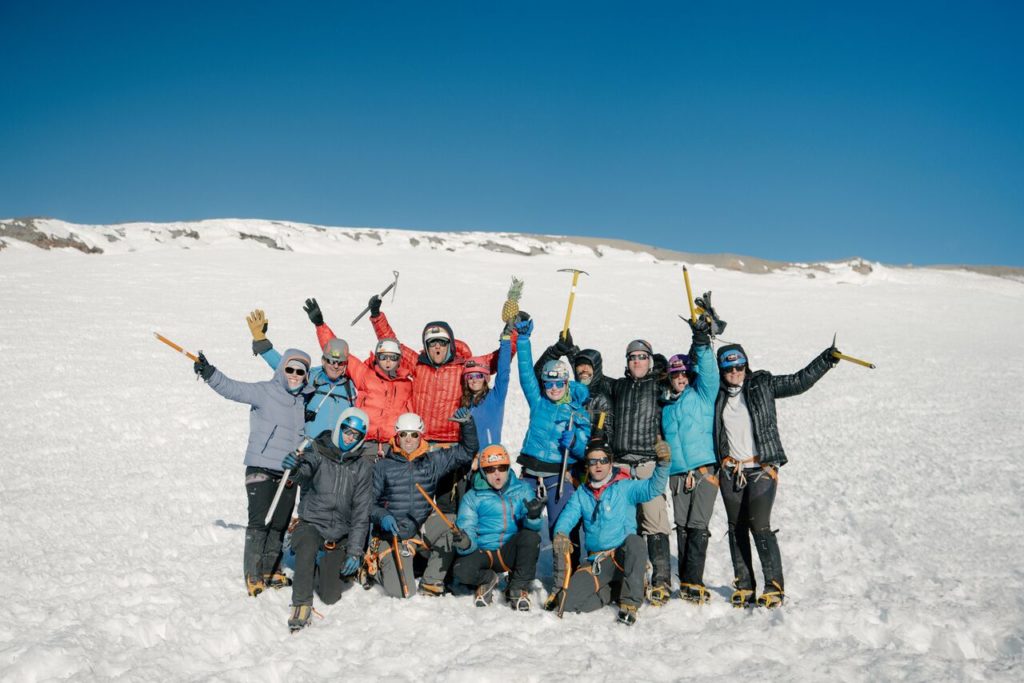
2018 Tacoma Climb Team – Summit of Mt. Rainier – photo courtesy: Greg Balkin

Sunrise on Mt. Rainier, smokey billowing clouds below. – photo courtesy: Greg Balkin
Please consider supporting Sarah and the other climber’s like her by joining our Community Of Compassion.
-
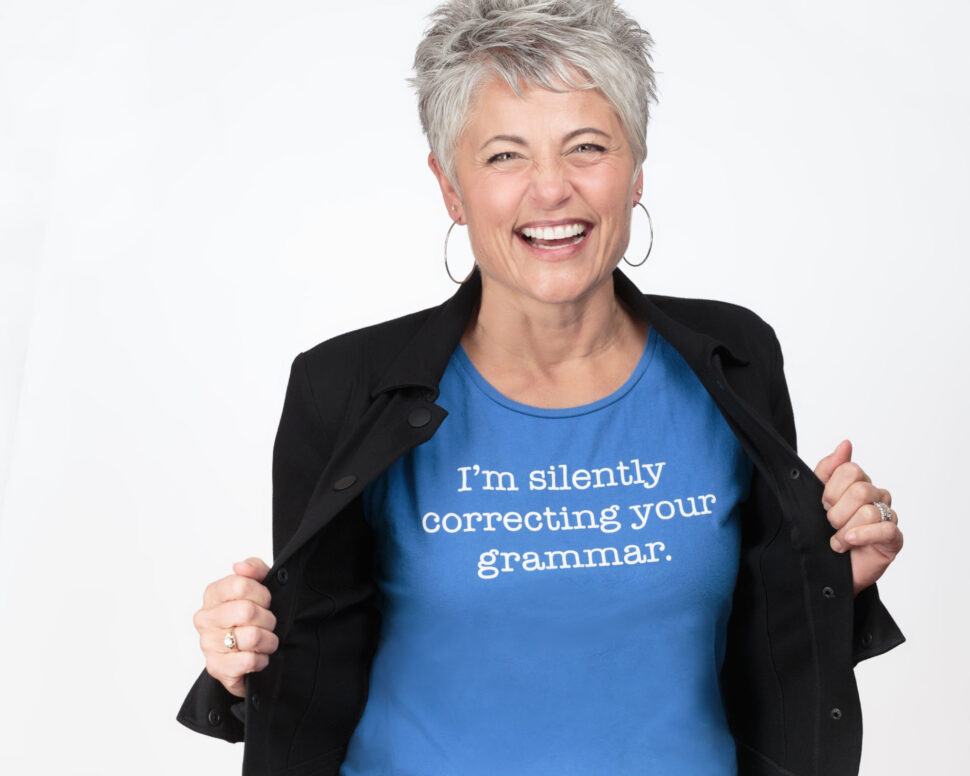
Save the Date! Support our program by joining us for our Seminar
Our Climbing Out Program teaches our participants interpersonal skills and the value of building healthy relationships. We are very excited to extend similar ideas out into our community by announcing our first seminar series, Effective Communication: Tips for Speaking Intentionally, presented by Jenni Butz. Jenni is a former foreign language teacher, who presents lectures and workshops on communication throughout the United States and Europe. Jenni believes that “when we learn, everybody wins.”
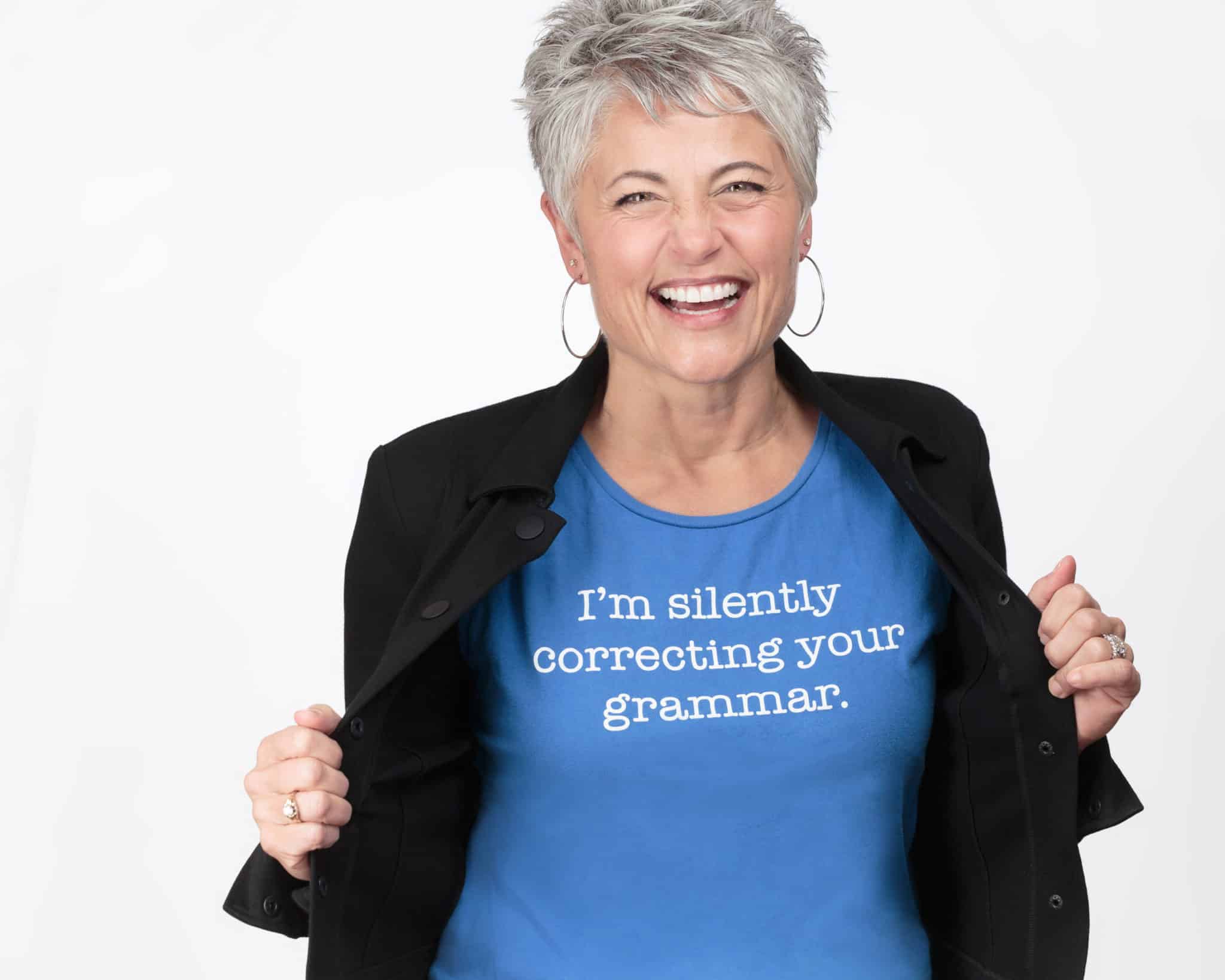
Communication can be complex. Learning to communicate effectively is important for maintaining strong and successful relationships in different areas of your life. Ever feel like your conversations end in frustration? Or that you avoid having confrontational conversations? Join us for this workshop where you will learn to minimize misunderstandings while also learning to speak with truth, respect, and confidence. By improving your ability to communicate, you will have conversations that will result in action and understanding.
This lecture is for anyone interested in improving their ability to speak intentionally. There are two dates available: Saturday, August 11, from 9 am to 12 pm. To register today, click here (https://recoverybp.org/seminar-series/)
Please check out Jenni’s website to learn more about this amazing woman and the work she does: (https://www.thewordspark.com)
-
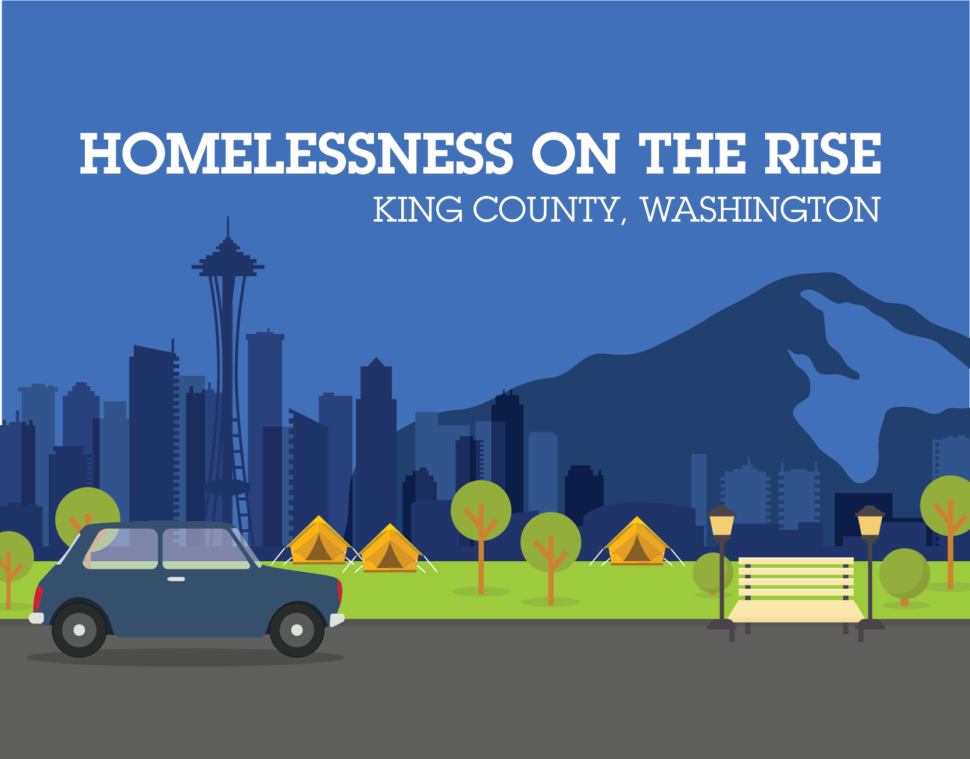
Homelessness in Our Community: WHY our work is needed and HOW you can help.
“Seattle’s homelessness crisis has been years in the making, and its roots run deep, touching racial inequity, economic disparities, mental health treatment, rising housing costs, mental health, addiction, and so much more. We have a responsibility to be honest that this crisis won’t go away overnight. Lasting, meaningful progress will take years. But we still must act – and are acting – to improve life in Seattle.” – Seattle Mayor Jenny Durkan
Scott Greenstone, the Seattle Times “Project Homeless” producer and engagement editor, stated that one way to help the homeless in Seattle is to shorten the wait time to receive mental health and addiction treatment services. “It’s common to wait a week or two – sometimes as much as a month –for an appointment.”
In a report done in 2010 by the U.S. Department of Housing and Urban Development, 34.7{637c4c527fde39f83a380e19107d2ba88ad72607f37ccf8f8b7edeff1c20688c} of sheltered adults who were homeless had chronic substance use issues (SAMHSA) and over 80{637c4c527fde39f83a380e19107d2ba88ad72607f37ccf8f8b7edeff1c20688c} have experienced lifetime alcohol and/or drug problems. According to Seattle Major Jenny A. Durkan’s website, drug overdose is currently the leading cause of death among people who are homeless. More individuals seek detox for heroin than they do alcohol in King County. Due to the lack of beds in Washington (Washington state is ranked 47th in the nation for psychiatric beds per capita), there are more than 150 people on a waitlist for treatment every day! The City of Seattle has allotted a $78,00,000 budget for Homelessness Response in 2018, which includes areas such a shelter, hygiene and outreach, permanent supportive housing, rapid rehousing and diversion, prevention, access to services, operations, and more.
Recovery Beyond’s Climbing Out program has shown an optimistic success rate in helping individuals holistically through recovery by weaving together socialization skills and teamwork with physical activity. As noted in a Federal Strategic Plan to Prevent and End Homelessness, amended in 2015, entitled “Opening Doors”, individuals who are homeless struggle with having a non-existent or frail support network. The interpersonal skills Recovery Beyond teaches are important in the recovery process because they remove the “us vs. them” mentality and increase the likelihood of recovery due to better, supportive relationships. In the past three years, nearly all participants in the program have remained sober. This is incredible. On average, it takes an individual about seven attempts to achieve lasting sobriety.
We need to do everything we can and have all-hands-on-deck if we are going to help homeless individuals in recovery. We are asking for your help: Homelessness can’t be solved overnight. It’s a process of recovery, achieved one individual at a time.
Homelessness continues to be on the rise in King County, according to All Home, an agency that works collaboratively with other organizations and institutions in the county to significantly reduce homelessness. At the time of data collection in 2018, the homeless population in King County was at 12, 211, rising by 469 individuals from the previous year. Over half of the homeless population lives unsheltered, and the remaining live in vehicles, buildings, tents, transitional housing, villages, and emergency shelters.The housing crisis is just one of the many causes of homelessness, but currently grabs more media attention than other causes. Other factors that contribute to homelessness include domestic violence, certain disabilities, untreated mental illness, medical bills, and addiction. Individuals may utilize substances to alleviate the discomforts they are experiencing, whether it be the challenges of an undiagnosed mental health disorder, physical pain, or a coping mechanism for a life situation, such as the death of a loved one or a divorce. There are several factors that can lead to substance use disorders, including social factors, genetic predisposition, availability and tolerance, and other mental health problems.
Will you support our efforts? A monetary donation will support our mission. Please click here to donate.
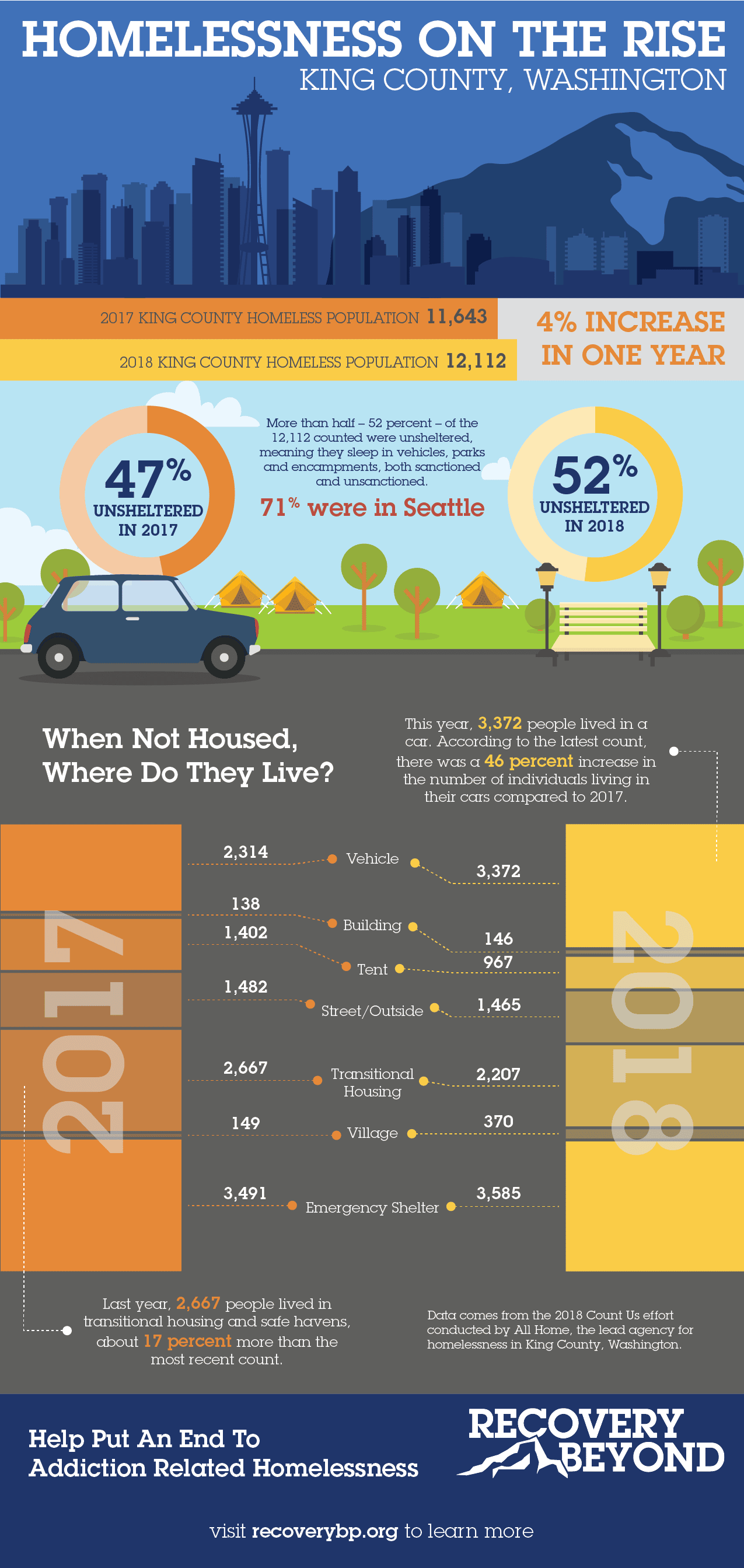
- Current Statistics on the Prevalence and Characteristics of People Experiencing Homelessness in the United States[PDF]. (2011). SAMSHA.
- Greenstone, S. (2017, November 24). One way to help homeless in King County? Shorten the wait for treatment. Retrieved from https://www.seattletimes.com/seattle-news/homeless/one-way-to-help-homeless-in-king-county-shorten-the-wait-for-treatment
- L. (2016, January 21). Homelessness Programs and Resources. Retrieved from https://www.samhsa.gov/homelessness-programs-resources
- Opening Doors[PDF]. (2015, June). United States Interagency Council on Homelessness.
- The Roots of the Crisis. (n.d.). Retrieved July 4, 2018, from https://www.seattle.gov/homelessness/the-roots-of-the-crisis
-
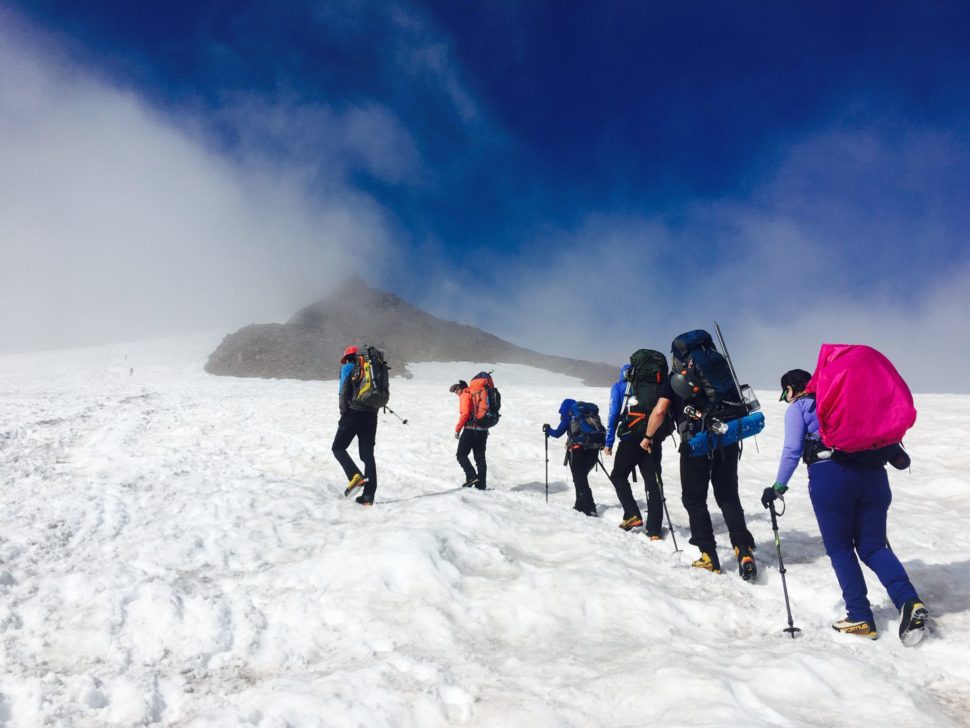
Meet The 2018 Climbers
Each person that goes through our program has a unique story. We wanted to take this opportunity to introduce you to each of our 2018 Climbers.
Meet Tyra

Tyra | Seattle Women
A Seattle native, 26-year-old Tyra found her way to Recovery Beyond after hitting rock bottom. “I was hopeless, and living in a car,” she said, “I was pregnant with my second child and fighting to get my oldest back.” Staying clean and sober with support from colleagues and staff at the program has opened up new doors for her, and she is optimistic about the continued opportunities she will experience in this program. “This is an amazing opportunity and staying clean will bring more opportunities like this my way.”
Meet Nicky

Nicki | Seattle Women
41-year-old Nicky hails from Sartell, Minnesota and has lofty goals for her life in and beyond the recovery program. “[I want] to climb Mt. Rainier, run Ragnar, Sparta, and a half marathon.” Besides these incredible physical feats, she wants to help remedy her relationship with her family and find peace within herself through the support network of Recovery Beyond and the strength of her own spirit. There is no doubt that her passion, faith, and desire for change will help her achieve these goals and more as she strives to become “more of who God designed me to be.”
Meet Michelle

Michelle | Seattle Women
Hope and acceptance are two of the most quintessential human desires – something we all search for in moments both big and small. Hope is also what drew Michelle, a Californian transplant, to the Recovery Beyond program. “[I have] a need to know that I am not useless and unloved. I hope to learn to not hate who I became, and to learn how to be happy and live life to the fullest,” she says. Staying sober with the support of the climb team and building a foundation of healthy friendships offers her that beacon of hope – of finding her own value and learning who she is in Christ.
Meet Sarah

Sarah | Tacoma Women
For Sarah, a native of Spanaway, motherhood was the best motivation to turn her life around. “I have these two beautiful children that I wasn’t being the best mom I can be to so I was willing to try anything,” she said of joining the Climbing Out climb team. 30-day-programs had failed her before, and she had to hit rock bottom before finding her way here. “[The Climb Team] is a commitment I’m sticking to!” she says, “It is a healthy replacement that gets me motivated to be strong and healthy.” Her goals outside of the climb itself include pursuing a career as a substance abuse counselor while exploring God’s truths and plans for her.
Meet Julie

Julie | Tacoma Women
30-year-old Julie from Parkland, WA takes a God-centered approach to her climb. She feels a closer relationship with God brought her into the program and will continue to guide her through the challenges and trials ahead while she builds relationships with others and grows to “be a light in the world.” When asked why she wanted to join the climb team, Julie replied, “Going through things you never thought you’d go through will only take you places you’d never thought you’d go,” an apt message about climbing mountains in both the physical and emotional world.
Meet Jessica

Jesica | Tacoma Women
Jessica of Puyallup believes that God brought her to the Climbing Out Program. “I needed to get clean and sober so I wouldn’t lose my children, so I wouldn’t lose my relationship with God, who loves me unconditionally even through my dark days. He brought me to the program.” Along with pushing herself physically for the climb, she hopes to maintain awareness and control over her addiction while rebuilding relationships with her family members. She is particularly excited about working together with the climb team, saying, “I get to be around other people going through similar things, and I get to step outside my comfort zone, and push my body in ways that it’s never been pushed. The climb team is a beautiful group of people there to encourage each other.”
Meet Colin

Colin | Seattle Men
Originally from Sacramento, CA, Colin believes the physical challenge of training for the climb and becoming physically fit will be a source of support in his recovery. He came to the program after growing tired of the life he was living, and hopes to get sober and make changes in his life.
Meet Chris

Chris | Seattle Men
At the age of 27, Seattle native Chris has already lived through more than many, including a stretch of homelessness and drug addiction that “nearly took my life,” he says, “After me realizing that 3 years had gone by and I had freely given away everything for that next high, I knew I needed a change and that change had to include God in my life.” He came to the Climbing Out program seeking a better relationship with God, a foundation in sobriety, and hoping to climb mountains and someday run marathons. He considers the fellowship of the program to be one of its major strengths. “Being a part of something bigger than yourself is a true blessing.”
Meet Joe

Joe | Seattle Men
Joe, a 28-year-old hailing from Longview, started using painkillers at a young age, which quickly turned to using heroin and nearly landed him on the streets. To avoid homelessness, a former counselor recommended he seek out the services of the mission, and the rest is history. He hopes to use the Climbing Out program to build a strong network of sober support, build a relationship with God, and mend his relationship with his family. “Through the climb team I’m able to meet many people in recovery, have spiritual experiences in nature, and instill discipline,” he says.
Meet Edward

Edward | Seattle Men
48-year-old Seattle native Edward hopes to use the recovery program to make significant changes in his life, ranging from strengthening his relationship with God to finding and securing housing and a job. His experience with the climb team is helping him learn teamwork and discipline. “The training is great experience,” he says.
Meet Christian

Christian | Seattle Men
Christian hails from Auburn, Washington, and is using the recovery program to dig at the roots of his addiction in hopes of creating lasting change. His goals include getting his depression under control, digging into how his thinking processes influenced his life circumstances, and learning more about religion and how it has and will impact his life. He looks forward to working with, learning from, and gaining inspiration from his teammates. Of the climb program itself, he says, “It is a healthy hobby that is fun and inspiring to go along with some of the more heavy psychological things I am working on. [It] gives me a feeling of accomplishment as I work on personal goals.” The intentionality with which Christian pursues his recovery are sure to serve him and his teammates well along the way.
Meet Tom

Tom | Seattle Men
Tom, a 27-year-old from Bothell, found his way to the Climbing Out program offered by Recovery Beyond after a scary wake-up call. “I relapsed and ended up in the ER with alcohol poisoning,” he said. He hopes that with the help and support of the CADRE program he will be able to maintain sobriety through the course of the program and beyond. Tom is looking forward to the climb, saying, “It gives me a fun goal to work towards, and a once in a lifetime experience.”
Meet Jason

Jason | Tacoma Men
22-year-old Jason was raised in Las Vegas and cites family as a major motivator for him in the recovery program. “My mother was struggling and trying to help me at the same time,” he says, “I’m not the uncle, brother or son that I want to be.” He struggled to find work due to his addiction, and hopes that with the recovery program he will be able to find a career to pursue and further his education. Jason’s compassion shines through when he speaks about hiking with the climb team. “I like to stay back with people who struggle a little bit because I believe it helps to have someone with you motivating them.” To him, the recovery program represents a change to continue to forge these meaningful connections with others and a new lease on life. “To me, I wasn’t present in my own life. I would be alone forever if I didn’t come here.”
Meet Chris

Chris | Tacoma Men
Chris is a Tacoma native who has hopes of someday pursuing a career in fire and rescue. With the help of the climb team and recovery program he hopes to boost his self-esteem, discover new coping mechanisms, and focus on tools to build better relationships with others.
Meet Stephen

Stephen | Tacoma Men
Stephen is a 40-year-old local who is working on centering himself and his life around God. He was brought to the program in hopes of bolstering his recovery from alcoholism and to become a better father and husband. He hopes the climb team will help him build better relationships with people by building trust and learning to work as a team to achieve goals.
Meet Jason

Jason | Tacoma Men
Born to a preacher in Burien, Jason credits his early success in life to his foundation in faith, one he hopes to return to through the recovery program. Of his life, he says, “Due to my imperfections and following temptations I became aware I had no more ability to manage success in a responsible way. I needed help, & by my faith, I think it brought the Mission to me.” By building his faith in the company of like-minded others on the team, he hopes to access a new level of spirituality. He sees the climb as both a physical and metaphorical opportunity to rise above. “I will literally have the opportunity of a lifetime, to experience in a physical and mental way, the epic goal & reward of reaching a mountain top!” he says, “My success depends on similar principles to my recovery.”
Archive for 2018
Recovery Beyond > 2018
